IUCN Pakistan validated the AIMPA Management
Plan and signaled the beginning of a new phase
in Pakistan’s marine conservation efforts
Press Release
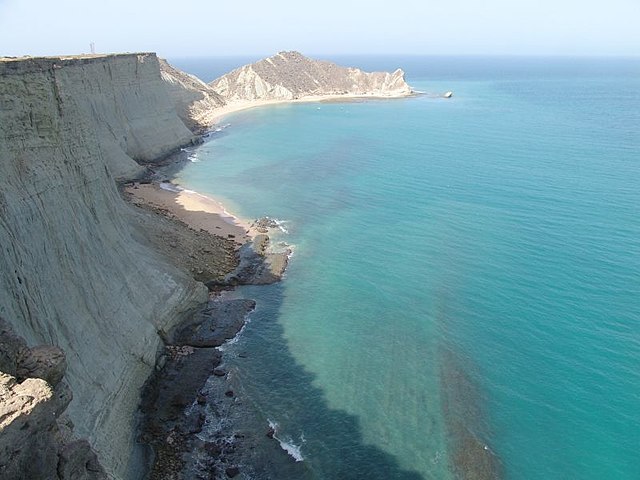
Karachi: The Astola Island Marine Protected Area (AIMPA) Management Plan Validation Workshop, organized by IUCN Pakistan, was held in Karachi, marking a significant milestone in the nation’s coastal and marine conservation efforts. This workshop served as a critical platform for stakeholders to discuss, validate, and finalize the management plan for Astola Island, a major step forward in protecting Pakistan’s biodiversity.
Astola Island: Pakistan’s First Marine Protected Area
IUCN Pakistan has been leading coastal conservation efforts since 2016, particularly through the Mangroves for Future Program (MFF) and the formation of the National Coordinating Body (NCB). These efforts culminated in Astola Island’s historic designation as Pakistan’s first Marine Protected Area (MPA) in 2017. The workshop focused on developing a robust management plan as part of the broader national commitment to the Convention on Biological Diversity (CBD) 30×30 target. This initiative falls under IUCN Pakistan’s project, “Building Resilience of Coastal, Ecological and Social Systems of Pakistan.”
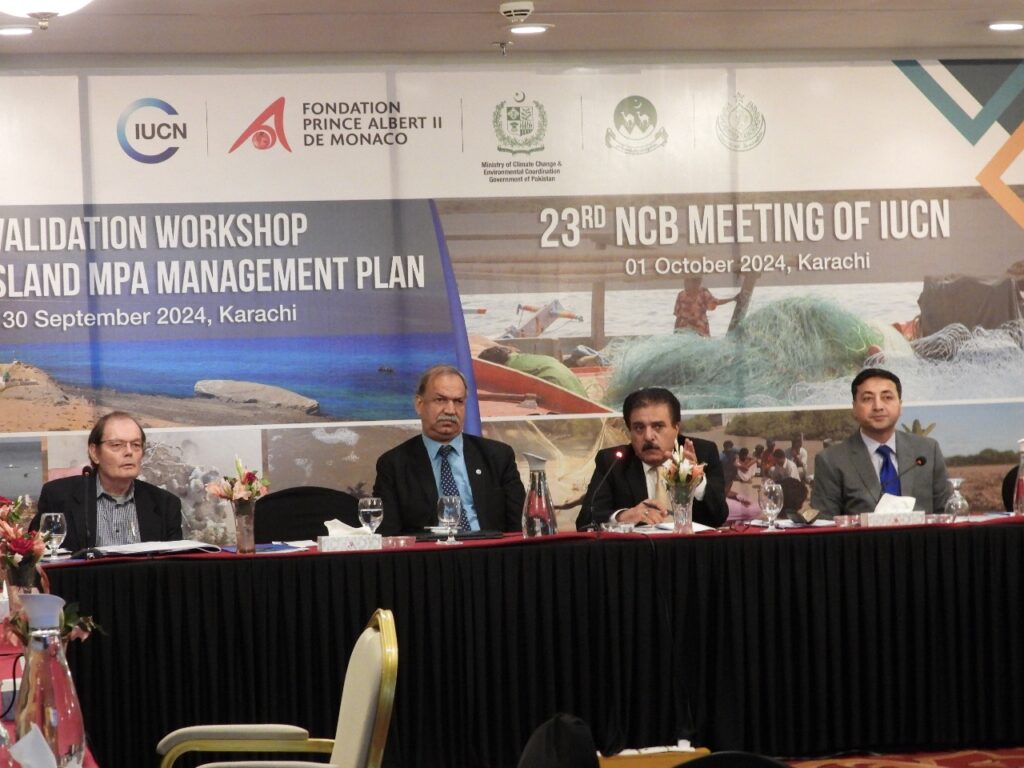
Key Stakeholders Join Forces
The workshop featured key representatives from the Ministry of Climate Change & Environmental Coordination (MoCC&EC) and the Balochistan Forest and Wildlife Department (BFWD), including Mr. Naeem Ashraf Raja, Director Biodiversity MoCC&EC, and Mr. Dostain Khan Jamaldini, Secretary BFWD. Additionally, Major General Jawad Riaz, Director General of Pakistan Coast Guards, participated, alongside local communities, law enforcement agencies, and civil society organizations.
Mr. Mahmood Akhtar Cheema, Country Representative of IUCN Pakistan, opened the workshop, stating, “The development of Astola Island’s management plan serves as a model for future MPA designations, including sites like Indus Creek, Miani Hor, and Kalmat Khor. IUCN Pakistan is conducting feasibility studies to support the 30×30 target.”
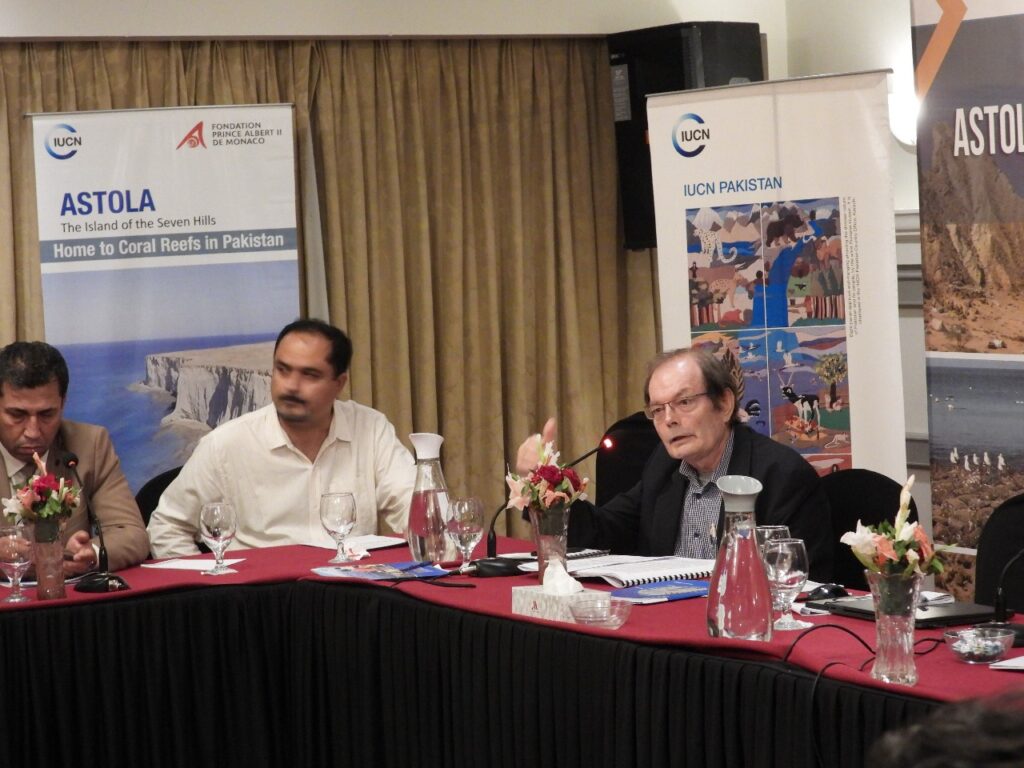
Collaboration for Coastal Ecosystem Preservation
In his opening address, Mr. Jamaldini emphasized the critical role of collaboration between federal and provincial governments, IUCN, and other stakeholders in preserving coastal ecosystems. “Astola Island MPA stands at the intersection of conservation and development, and it is our collective responsibility to ensure its future sustainability,” he said. He also expressed appreciation to IUCN and the Monaco Foundation for their support.
Dr. Donald Macintosh, a distinguished marine conservationist, outlined the workshop’s objectives and emphasized the need for an enforceable management plan. “This workshop is the culmination of extensive consultations, giving us the opportunity to finalize a plan that will secure Astola Island’s ecological integrity,” he remarked.
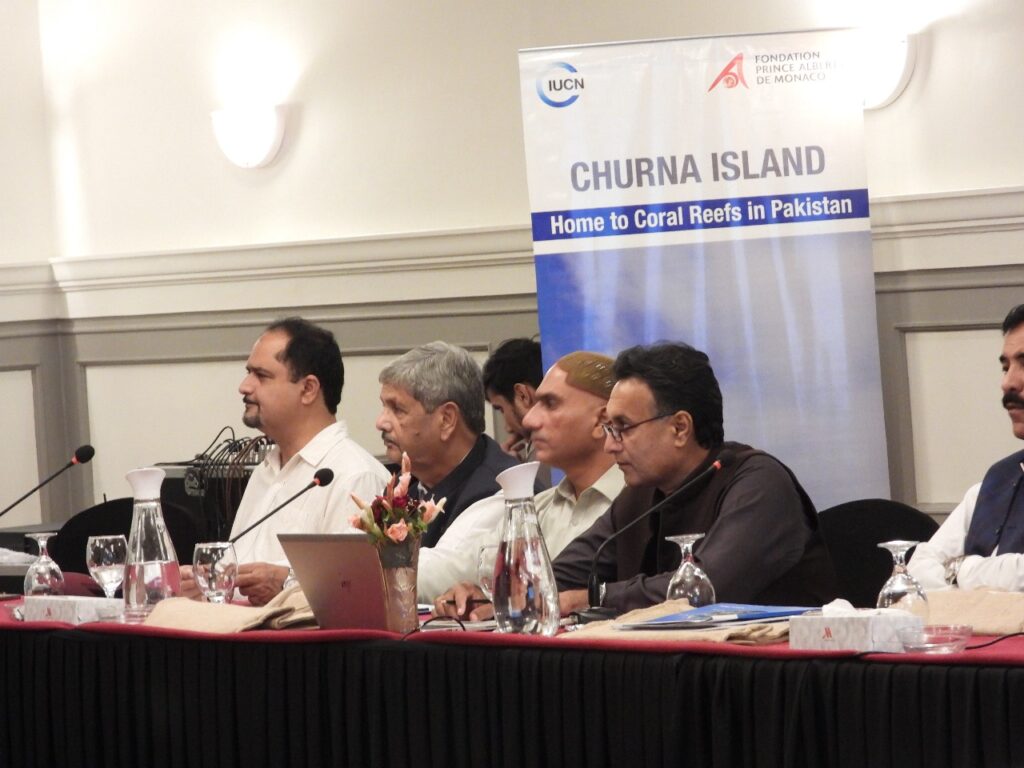
Key Issues Discussed
Participants addressed critical issues such as staffing for AIMPA, combating illegal fishing, and enforcing regulations on camping and visitor activities. Small group discussions focused on sustainable ecotourism, waste management, and habitat restoration, all crucial components of the management plan.
Mr. Naeem Ashraf Raja praised the consultative process, noting, “The collaborative efforts we witness today reflect the commitment of all stakeholders to safeguarding Pakistan’s marine biodiversity.” He also assured full support from the BFWD for implementing the management plan and prioritizing its terms.
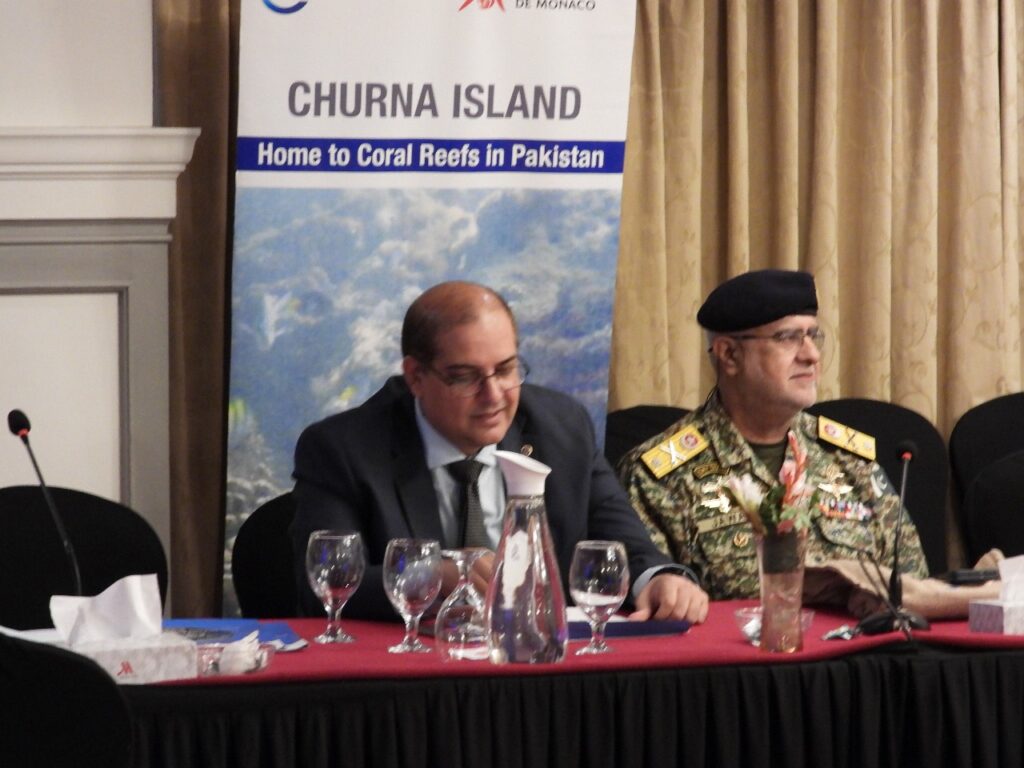
Commitment from Law Enforcement
Major General Jawad Riaz emphasized the vital role of law enforcement in protecting natural resources. “The Pakistan Coast Guards are fully committed to supporting all marine and biodiversity conservation efforts. Protecting Pakistan’s natural resources is a shared responsibility,” he stated.
Moving Forward
Mr. Jamaldini concluded the event by urging all stakeholders to remain committed to the long-term implementation of the management plan. “Astola Island MPA symbolizes our dedication to preserving Pakistan’s natural heritage, and its protection is vital for future generations,” he said.
IUCN Pakistan’s workshop successfully validated the AIMPA Management Plan and signaled the beginning of a new phase in Pakistan’s marine conservation efforts. Moving forward, IUCN will continue its work on other MPA sites, contributing to the national biodiversity targets under the 30×30 goal.























